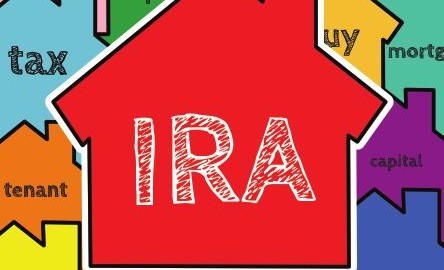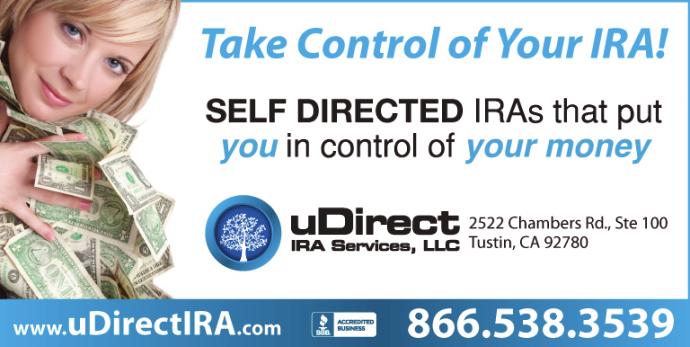By Leon McKenzie, CEO, US Probate Leads
According to Forisk Research, US Housing starts are projected to continue at 1.5 million a year all the way to the year 2024. This tremendous growth is great for the overall economy of the country. However, it will likely increase the competition for the stakeholders within the real estate industry. If you are a realtor or real estate investor, this is something that you need to be prepared for. Everyone wants a share of the profitable real estate pie.
But you shouldn’t fear. Increased competition does not mean that you have to lose money. You just have to find new ways to get better real estate leads for your business. The higher the quality of these leads, the more revenues you are likely to generate when they pan out.
So, where do you even begin? How should you go about investigating new lead sources for your real estate business?
As it turns out, there are plenty of options if you look in the right place.
Possible New Leads Sources for Your Real Estate Business
-
Your Local Attorneys
Whenever any major legal life changes occur, people tend to consult attorneys for help. We are talking about major issues such as bankruptcy, divorce, death and the like. And while these life changes may not be good for the clients of the attorneys, they can be very good news for your business.
Think about it: when someone declares bankruptcy for example, that person will need to get rid of some properties in order to comply with the legal conditions that arise from being in such a difficult situation. Some of those conditions may require one to sell a home in order for the creditors to be paid.
As a realtor or real estate investor, attorneys who handle major life issues for their clients can provide a steady source of leads for your business. Your business presents attorneys with the opportunity to further help their clients to sort out their financial problems in the easiest way possible.
It’s therefore in your best interest to take the time to establish a connection with the attorneys in your locale. Let them know what you do for a living, and then make it clear that you are available to do business with them and their clients. If you establish a good rapport with your local attorneys, you will become the go-to person when they need to help their clients get rid of their properties.
-
Home Cleaning Companies
 Some people hire home cleaning companies simply because they are not in the mood to clean their homes. But do you know who else likes to hire professional cleaners?
Some people hire home cleaning companies simply because they are not in the mood to clean their homes. But do you know who else likes to hire professional cleaners?
Sellers, that’s who!
When people are set to put up their homes on the market, they are more likely to hire professional home cleaning companies. Professionals are in a better position to clean the homes properly.
Once a home is put up for sale, then the chance for you to sell that home on behalf of a client as the lead realtor, is gone. If you are a real estate investor, then you need to be prepared for the competition from other potential buyers who may also be interested in the property.
Home cleaning companies are a good source of real estate leads because they will help you discover which homes may possibly be up for sale before the sign or listing goes up. This gives you the time to contact the homeowners and offer to either represent them or to buy the property off them quickly.
So, the next time you come across a professional home cleaning company in your area, pay them a visit, and start talking to the relevant parties. Leave your business card too. The casual chats you initiate may end up leading to a sale or two for you.
-
Property Managers
 Some homeowners are absentee landlords/ landladies. They want all the benefits of leasing out their properties without the headaches. For that reason, they hire property managers to manage their additional homes.
Some homeowners are absentee landlords/ landladies. They want all the benefits of leasing out their properties without the headaches. For that reason, they hire property managers to manage their additional homes.
If you are a realtor or real estate investor, then property managers are good professionals to have in your corner – especially if you live in an area with lots of investment proprties. At some point, some of the homeowners will get tired of owning the additional properties and may end up selling them to recover their monies.
If you did your due diligence and established a good relationship with the property managers in your locale, when their clients need to sell their homes, you will be the first person to know. This will ensure that you get your pick of prime properties that will enable you to get the best value for your money.
-
Consumer Loan Companies
 When people are denied loans by banks, they tend to go for loans from consumer loan companies. In such cases, it is safe to assume that the clients of these companies have a high debt load, poor credit, and are possibly in financial distress. This assumption isn’t far-fetched at all. After all, according to the 2015 NerdWallet survey, the average American household has a debt of $130,922!
When people are denied loans by banks, they tend to go for loans from consumer loan companies. In such cases, it is safe to assume that the clients of these companies have a high debt load, poor credit, and are possibly in financial distress. This assumption isn’t far-fetched at all. After all, according to the 2015 NerdWallet survey, the average American household has a debt of $130,922!
So, when someone in financial distress cannot qualify for a regular loan, it is safe to say that the person in question may be looking to make lifestyle changes. In the event that such a person has a home, he or she may be very eager to downsize in order to reduce the overall debt.
When you run a real estate business, consumer loan companies can be a good source of information on potential sellers or clients of homes, depending on whether you are a realtor or investor.
Take time to talk to the company administrators and inquire on the list of their clients. The worst that could happen is that you get a “no” because the company does not divulge information on their clients. Alternatively, someone working there may mention that they have clients desperate to sell their properties and want some help. Either way, it never hurts to ask.
-
Nursing Homes and Retirement Communities
 As of 2014, there were at least 15,600 nursing homes in the U.S. All these homes had a total of about 1.7 million licensed beds.
As of 2014, there were at least 15,600 nursing homes in the U.S. All these homes had a total of about 1.7 million licensed beds.
It’s important for you to consider senior citizens when you are investigating new lead sources for your real estate business. Many of the retirees living in nursing homes and retirement communities may have some property that they acquired during their working life.
When you consider that the average 55-64 year old only has $45,447 saved up for retirement, you can see why it would make sense for senior citizens to sell their homes to boost their savings. And this is where you come in.
As a realtor or real estate investor, you could take the time to talk to the members of the retirement communities within your area and create awareness of your services. Let them know how you can be of service to help them improve their financial situation. Leave a business card to anyone who’s interested and then adopt a wait-and-see attitude.
Do not be surprised to see multiple people contacting you to help them get rid of their properties. Many of them could have been waiting for someone helpful to come along and help them sell a home they had invested their time, money, and emotions in.
The Trouble with Investigating New Lead Sources…
Your local attorneys, home cleaning and consumer loan companies, property managers, and retirement homes and communities are all great sources of new leads for your real estate business. Most industry players who just happen to be your competition would probably not think of them. That said they do have their fair share of challenges:
-
It takes a certain amount of social skills to network and form mutually-beneficial relationships with other professionals who can provide leads for your business. If you have social anxiety, prolonged contact to keep the relationships going can be a hassle. There is also the fact that it takes a lot of effort to establish the business relationships in the first place. If you have neither the time nor the energy, these lead sources won’t work out.
Probate Leads Mining Offer the New Real Estate Lead Source to Beat!
Have you ever taken the time to consider how many people actually die and leave their properties behind?
A lot as it turns out!
There are at least 2.6 million deaths annually in the USA.
And by 2018, there will be $15 trillion worth of real estate settlements that will run through the Superior courts. And 70% of them will be in form of real estate.
It’s also worth noting that 50% of executors live out of the county where the probate process takes place.
 Think of the possibilities!
Think of the possibilities!
Probate lead mining companies offer you the chance to explore a new lead source that not many real estate industry stake holders consider. But unlike the other lead sources, you don’t have to deal with the hassle that goes into getting the information that you want. All you have to do is buy the already-qualified leads and you will find highly motivated executors at the other end of the line.
So, when looking for new lead sources, definitely consider probate leads. Probate lead mining companies like US Probate Leads offer the best solution if you are looking for new lead sources for your real estate business.
US Probate Leads
Leon McKenzie
Chief Executive Officer
Leon cofounded US Probate Leads more than 12 years ago and has witnessed its growth during that period from a one city lead provider in the probate space to the only national provider of probate leads for virtually every county in the country.
Leon likes to point out that US Probate Leads is the only company providing Probate-related Real Estate-related leads to Investors and Realtors based on data collected directly from individual probate courts in virtually every state. This has been achieved by building a National Network of Researchers that visit each county one time each month. Leon’s team processes this incoming data and makes it available to individual subscribers for their use in reaching out to highly motivated property sellers.
Email: [email protected]
Web Site: www.usprobateleads.com
Contact Details: Leon McKenzie
8108 Penobscot Ln
McKinney, TX 75071
(877) 470-9751







































